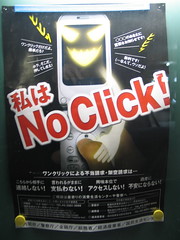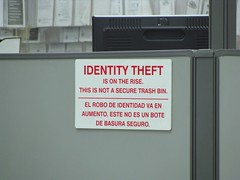DesMoinesRegister.com
Nearly $9,000 was stolen from a Des Moines family’s credit union account after their home computer was hacked. The theft occurred at the end of March.
“My husband was on the computer and he’d just paid a credit card bill,” Nickie Siracusano said. “A pop-up that said PC Shields came up on the screen. It said the computer had received a virus.”
The computer wouldn’t work for a day. Siracusano said her husband, Anthony, worked on it and finally got it running again.
About two weeks later, a representative of the fraud department of Affinity Credit Union called asking if the couple had been out of state. The Siracusanos said they hadn’t left Iowa.
Nickie Siracusano said that’s when they found out someone was spending their money, draining their account. The hackers apparently gained access to the couple’s personal information while their computer was locked up, Nickie Siracusano said.
Des Moines police have heard of a similar pop-up that asks for $39 to get rid of a virus. The owner of the computer is asked for a credit card number. After the victim provides the information, the computer begins working again.
To explore how the fake anti-virus scam works:
Google warns off fake Anti-Virus programs popping up online
“But they don’t really hack into the computer and get personal information,” Detective Terry Mitchell said.
“It just gets you to give them your credit card number and then they use it.”
Nickie Siracusano said that among the charges on their account was a bill for $39 to PC Shield or PC SecurityShield, a computer security company. She said her husband did not provide a card number.
An Affinity Credit Union spokesperson could not be reached for comment.
Siracusano said she was told that thieves paid bills, bought a Greyhound bus ticket and a variety of things in Illinois, Kentucky, Tennessee, Georgia, Arizona, Florida and North and South Carolina.
“For two and a half weeks this person had a lot of fun with our hard-earned money,” Nickie Siracusano said. “It was all gone, just like that.”
The credit union will reimburse the Siracusanos, but in the meantime they must extricate themselves from a financial mess. “This makes you feel like a criminal,” she said. “It’s horrible. You think you’re safe in your own house, but you’re not.”
The Siracusanos have not figured out how they were targeted.
Des Moines Police Detective Ray Carrington said the money came out of the couple’s checking account at the credit union.
A debit card is connected to the checking account, but the Siracusanos said they did not provide that number to the pop-up screen. Nickie Siracusano said the thieves got all the information they needed to get into their account from information stored in their computer.
Nickie Siracusano of Des Moines talks about how a computer hacker stole personal information from her family’s computer and then wiped out her and her husband’s bank account.
Video (D.M. family interview who loses $9,000 to hacker)
Symantec Protection Suite SBE (End to end and multiple layers of protection for Small Business)
Tags: Banking Services, Business, Credit card, debit card, Financial services, South Carolina, Theft, Transactional account












